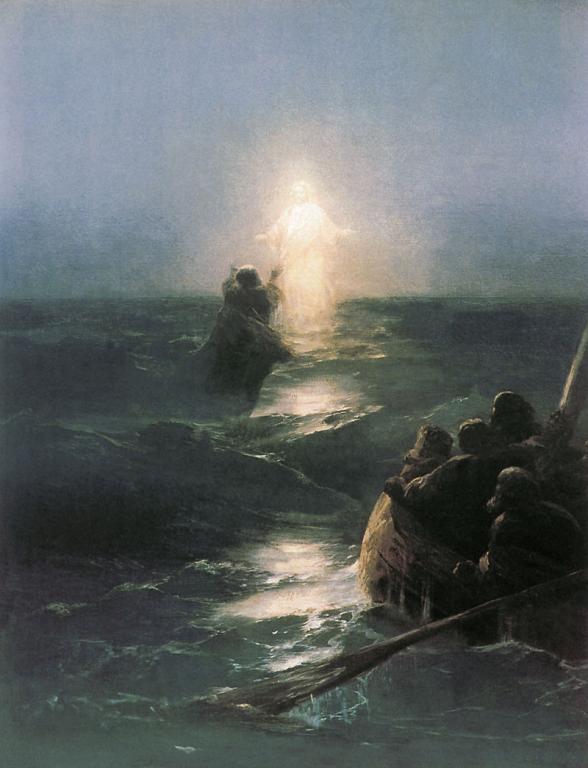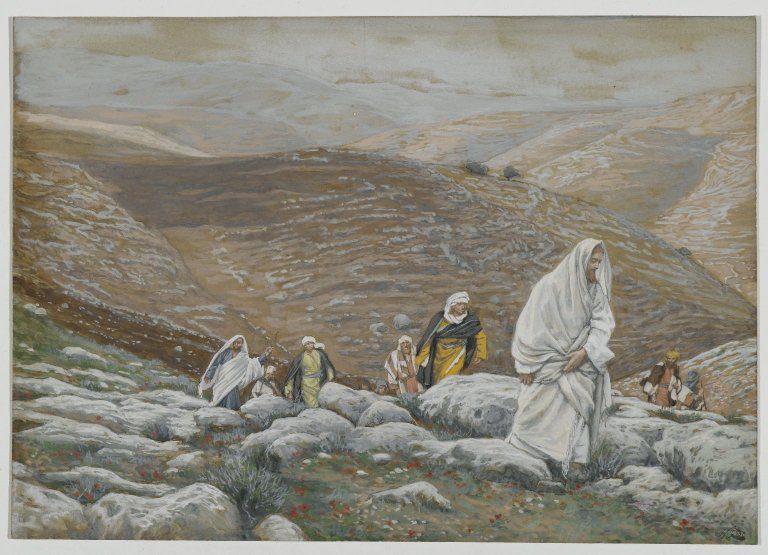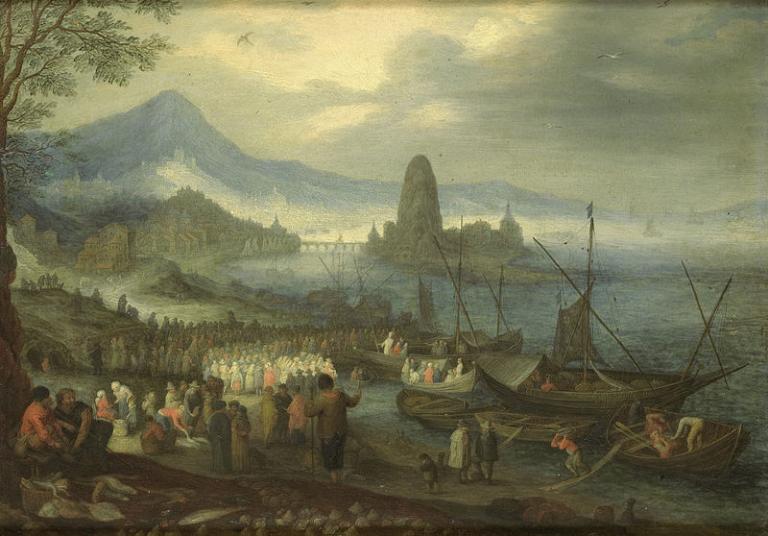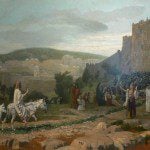
This episode would have been pretty unambiguous, true. But how many saw it?
Some appear to imagine that, while religious questions today are ambiguous and while contemporary religious claims are disputable and usually disputed, matters would have been much clearer had they only lived back in the days of Jesus.
Passages such as this one prove that, on the whole, the imagined clarity didn’t exist then, either.
In this life, absent divine grace, we mostly see through a glass, darkly.
That’s pretty plainly the way it’s supposed to be.

Tissot knew what the HolyLand looked like, because he spent considerable time there.
I like the language of Luke here: “When the days drew near for him to be received up, he set his face to go to Jerusalem.” Or, as the King James Version has it, “he steadfastly set his face to go to Jerusalem.”
καὶ αὐτὸς τὸ πρόσωπον ἐστήρισεν τοῦ πορεύεσθαι εἰς Ἰερουσαλήμ.
We mustn’t assume, simply because he was the divine Son of God, that this was easy for him. He knew, as much as anyone who hadn’t actually experienced it yet could know, what faced him in Jerusalem.
Yet he went.
I stand all amazed at the love Jesus offers me,
Confused at the grace that so fully he proffers me.
I tremble to know that for me he was crucified,
That for me, a sinner, he suffered, he bled and died.
Oh, it is wonderful that he should care for me
Enough to die for me!
Oh, it is wonderful, wonderful to me!
I marvel that he would descend from his throne divine
To rescue a soul so rebellious and proud as mine,
That he should extend his great love unto such as I,
Sufficient to own, to redeem, and to justify.
I think of his hands pierced and bleeding to pay the debt!
Such mercy, such love and devotion can I forget?
No, no, I will praise and adore at the mercy seat,
Until at the glorified throne I kneel at his feet.

Please note, incidentally, that this is a very inaccurate depiction of the landscape around the Galilee. To put it mildly, religious art isn’t always precisely accurate! (Wikimedia Commons public domain image)
Compare Matthew 5:31-32; Luke 16:18
These are tough passages. It’s absolutely clear, though, that God’s design is for marriages to endure.
Moses permitted divorce, but as a concession to human weakness, not as something with divine approval.
Compare this statement (a hadith, as they’re known) from the Prophet Muhammad:
“With God, the most detestable of all permitted things is divorce.”












